When the weather heats up it’s not always easy for animals and livestock to stay cool. Learn how to keep animals cool in hot weather with these simple tricks.
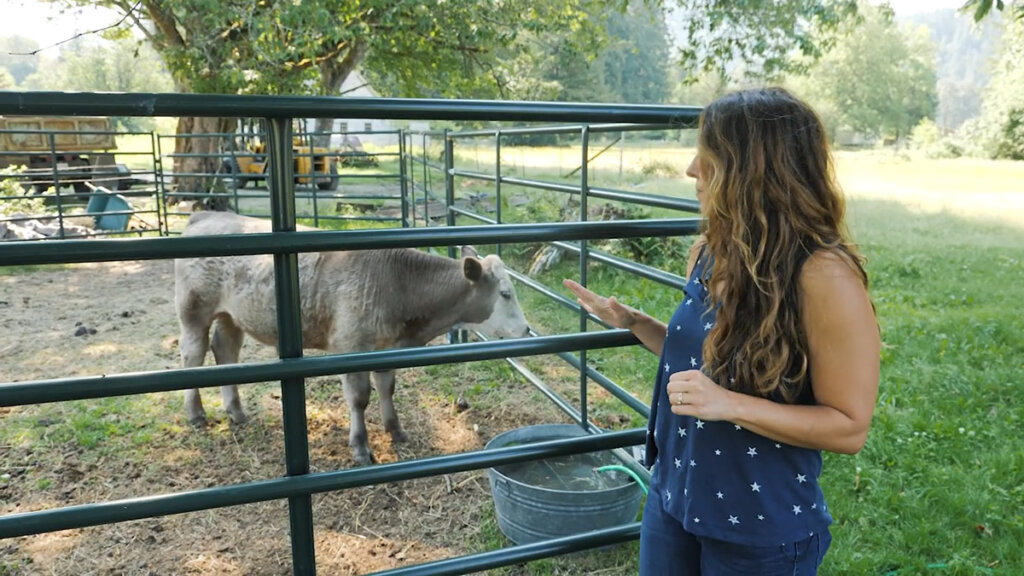
The most important thing when experiencing hot summer temperatures, especially when they’re outside the norm for your area (and even extreme temperatures like we experienced this year in the Pacific Northwest), is keeping your animals from becoming stressed and possibly dying.
It’s also important to know how to keep yourself cool (which I discuss in these posts on ways to keep your house cool without electricity and how to stay cool in summer without ac) and how to preserve food when it’s too hot to can.
Hot temperatures can easily become life-threatening to outdoor animals and livestock so following the tips I mention below can really be helpful.
The average daily temperature for the PNW in early summer is about 70 degrees F. We had temperatures in the triple digits (topping out at 120 degrees, a record high) for upwards of a week straight.
Because our animals aren’t acclimated to this kind of heat, it can be especially dangerous.
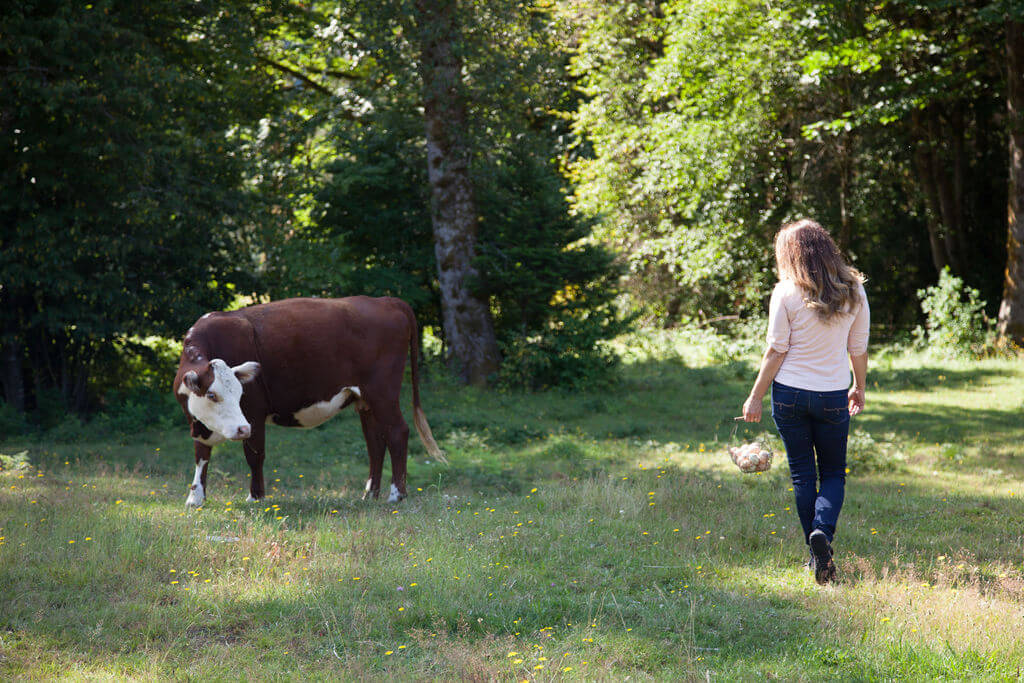
Tips for Keeping Livestock Cool
Provide Shade
Making sure your livestock and other animals have access to shade is very important. A shaded area can easily reduce the temperature by 10 degrees or more.
We moved our mobile chicken coop to a shady area of the yard to make sure our chickens were in the shade as well.
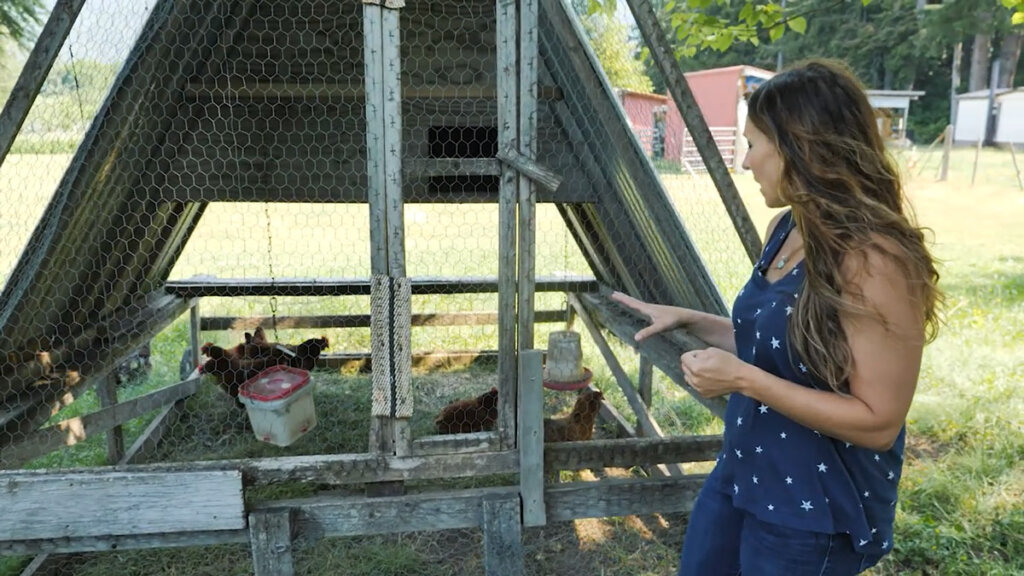
Ventillation
Take advantage of natural breezes by opening doors or windows strategically in your barn to create good air circulation.
If you know your property tends to be more breezy in certain areas, it might be a good idea, if possible, to move your livestock or other animals into that breezy area so they can take advantage of that.
Even just a slight breeze can make even the hottest days a bit more tolerable, and the same goes for our fluffy friends!
If good air circulation isn’t possible, consider getting a high-powered fan that can help move the air inside barns or coops.
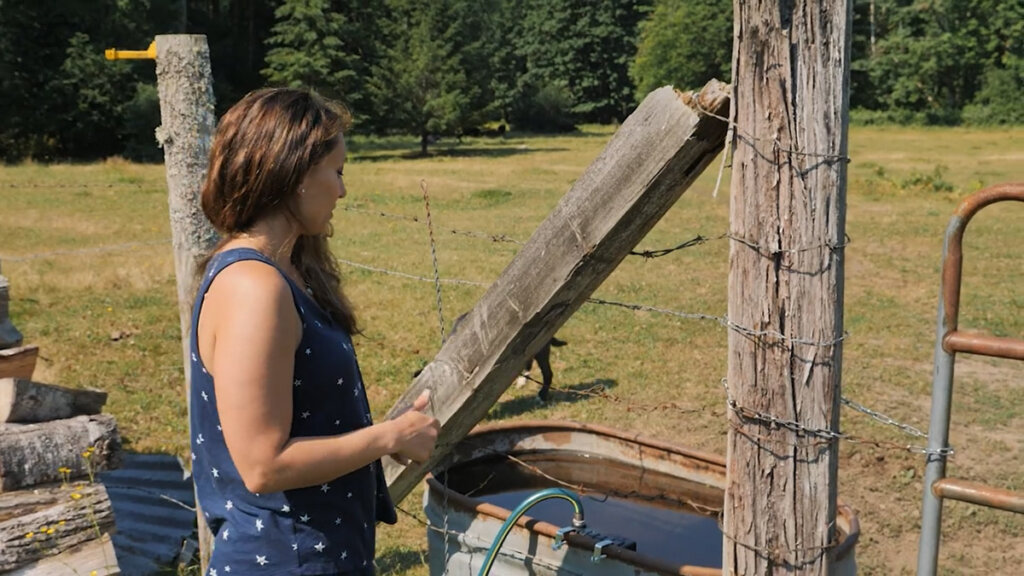
Water
Drinking Water
It’s important for animals to have access to water even when the temperatures aren’t soaring, but it’s even more important to be checking their water a few times daily to make sure it’s not evaporating, tipped over, or consumed.
Your animals will naturally drink more during the heat, so you may need to replenish it more often, or even consider getting some larger watering troughs or containers.
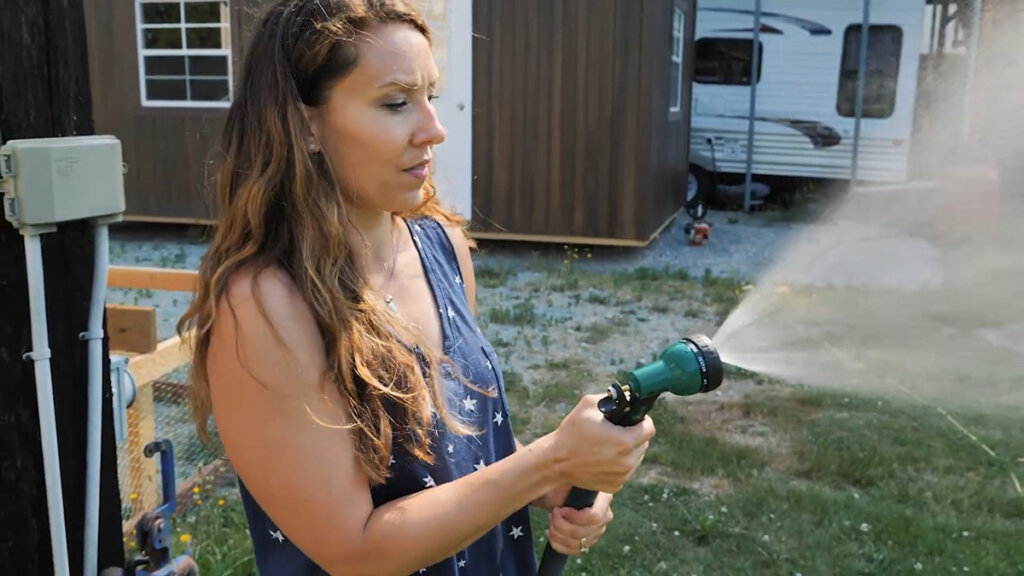
Sprinklers & Hoses
You can even spray your animals down with a hose to help cool them off. This can be done with a hose and nozzle, or even just a sprinkler turned on where the animal can access the spray.
Ice Blocks
Our chickens really love pecking at a large frozen block of ice (especially if we’ve frozen some of their feed or veggie scraps into the ice block). They’ll peck away at it and it will naturally help them to cool down.
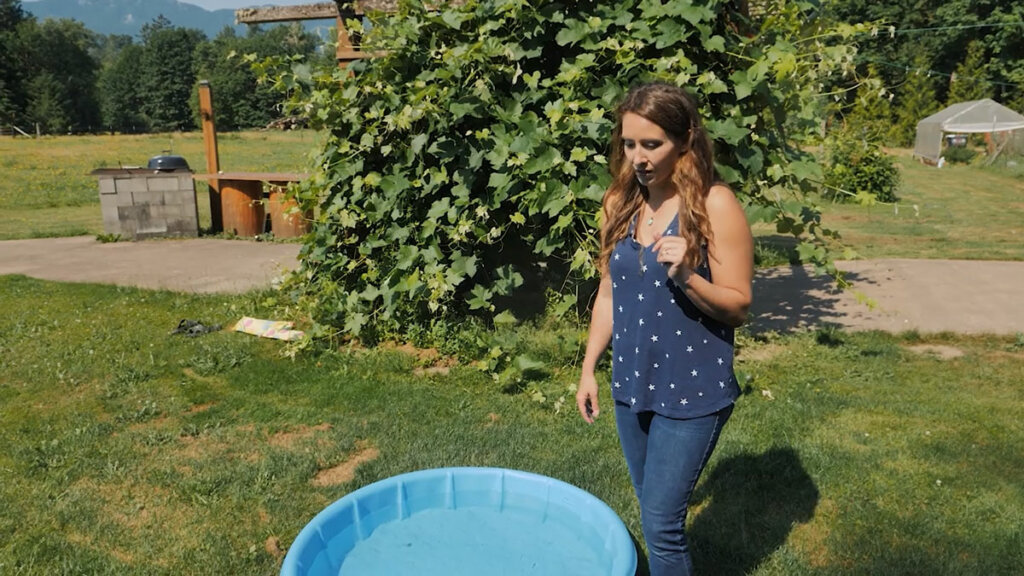
Swimming Holes & Kiddie Pools
If you have any bodies of water nearby, you can also encourage your animals to get in the water. This is especially great for animals like dogs.
For your livestock, if you have access to a creek then try to get them down by the water as temperatures will naturally get cooler by water.
We also bought a little kiddie pool for our dog, but this also works well for chickens and ducks that we are raising for eggs, etc.
For those animals that can’t get into a body of water, use the hose and spray them down with a strong mist.
I also saw on social media that some people would take sections of a soaker hose and affix them to the roof of their barn, then turned the water on so it would provide dripping water for the animals.
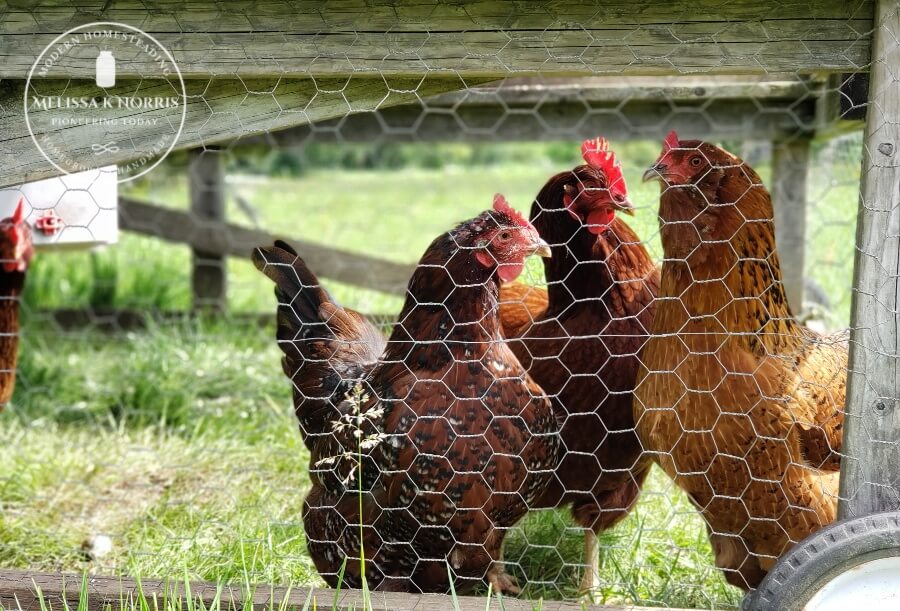
Too Much Heat – Signs to Watch For
Cows
During the hot, hot days, we reserved our pasture that’s deep in the woods and next to plenty of shade for them to escape into. We also turned on our automatic waterer to make sure their water troughs stayed full.
If the cows were just in barns we would also mist them with water to help keep them cool.
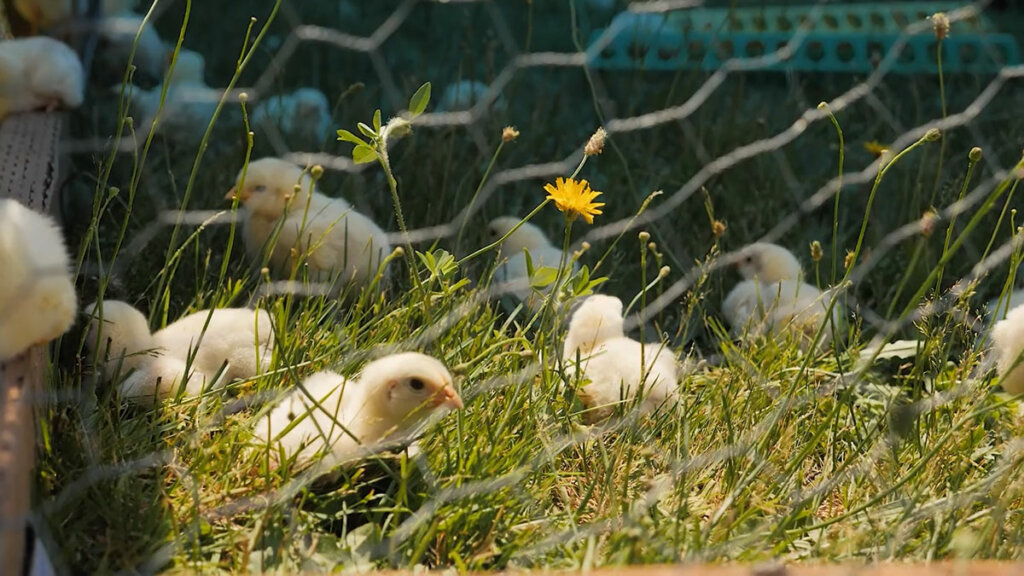
Egg-Laying Chickens & Meat Birds
Watch your chickens for signs of too much heat. Because chickens don’t sweat, they will pant to help cool themselves off. If you see your chickens panting, make sure they’re in the shade, try spraying them down gently with a hose and cool water, and giving them an ice block to peck on.
It’s completely normal to not get any eggs during a heatwave. When chickens become stressed, they will slow down or completely stop laying, and we definitely noticed that with our chickens. This is absolutely normal.
It was a blessing that our baby meat birds were still very young because they naturally need higher temps (95 degrees F). But 120 degrees was a lot more than what they needed, so I added some apple cider vinegar and molasses to their water so they were getting extra minerals and glucose to help keep their stress levels down.
Another thing to consider with your chickens is that the ground they’re walking on can get very hot for their little feet. So this is also why it’s important to keep them in the shade. You can take a hose and spray down the area they’re in to cool the grass off as well.
And allowing them access to some dirt where they can scratch away the top layer and lay where it’s a little cooler is smart.
Unfortunately, I did end up losing two baby chicks out of 55 birds, but all in all, I was happy with how well they did.
The animals on our homestead are an integral part of our livelihood. Knowing how to care for them during all seasons is an important homesteading skill we all should learn.
I hope you’ve found these tips helpful! Did I miss any? Let me know how you keep your animals cool in the comments below!
Other Articles You May Enjoy
- Your Livestock Questions Answered
- Growing a Garden & Raising Livestock Without Acreage
- Planning Your Livestock for a Year’s Worth of Meat Per Person
- Our Food Production Plan & How to Plan for Livestock
- Stocking Up on Animal Feed (+ How Much to Feed Animals)
- 5 Tips on Raising Livestock for Food
- 12 Tips on How to Raise Pigs for Meat
- Keeping a Family Milk Cow- 8 Things You Need to Know
- Maximizing Your Homestead for Profit & Production (With Joel Salatin)
- Commonly Believed Homesteading Myths
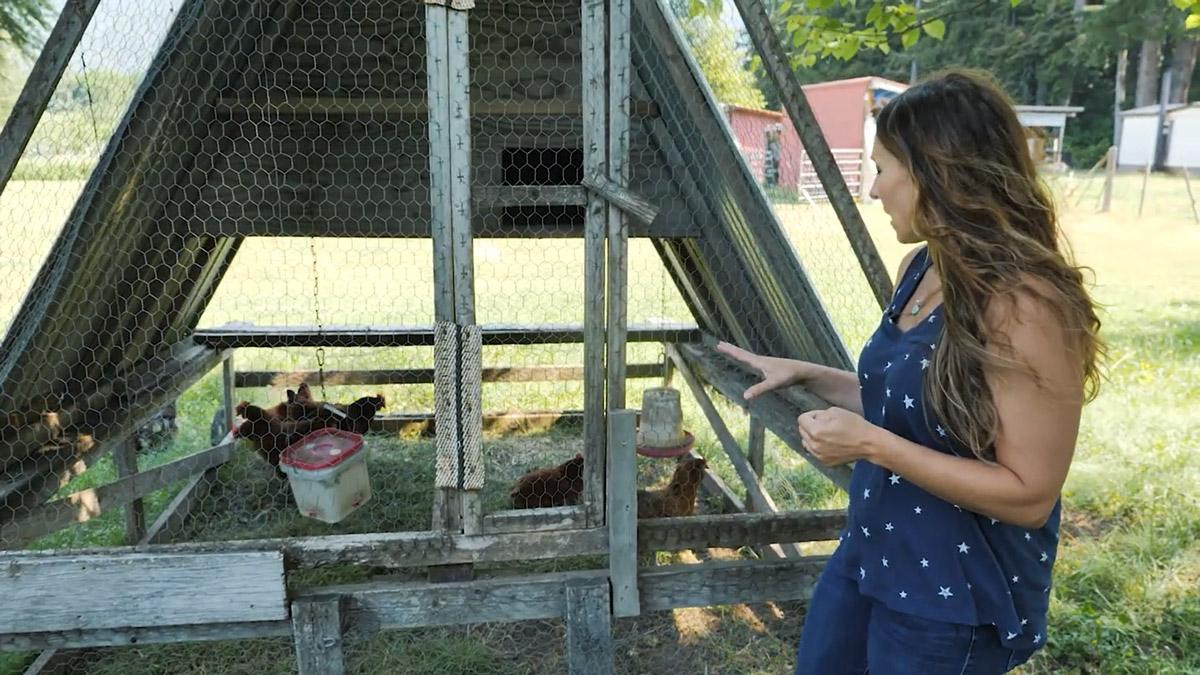
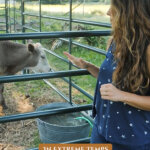
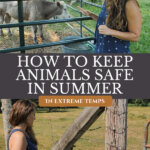
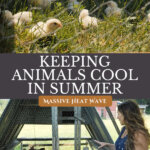
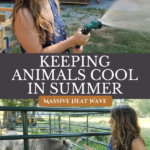
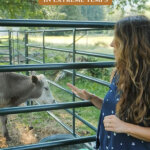
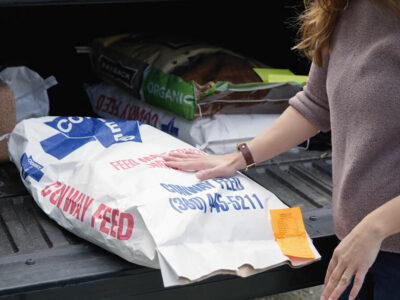
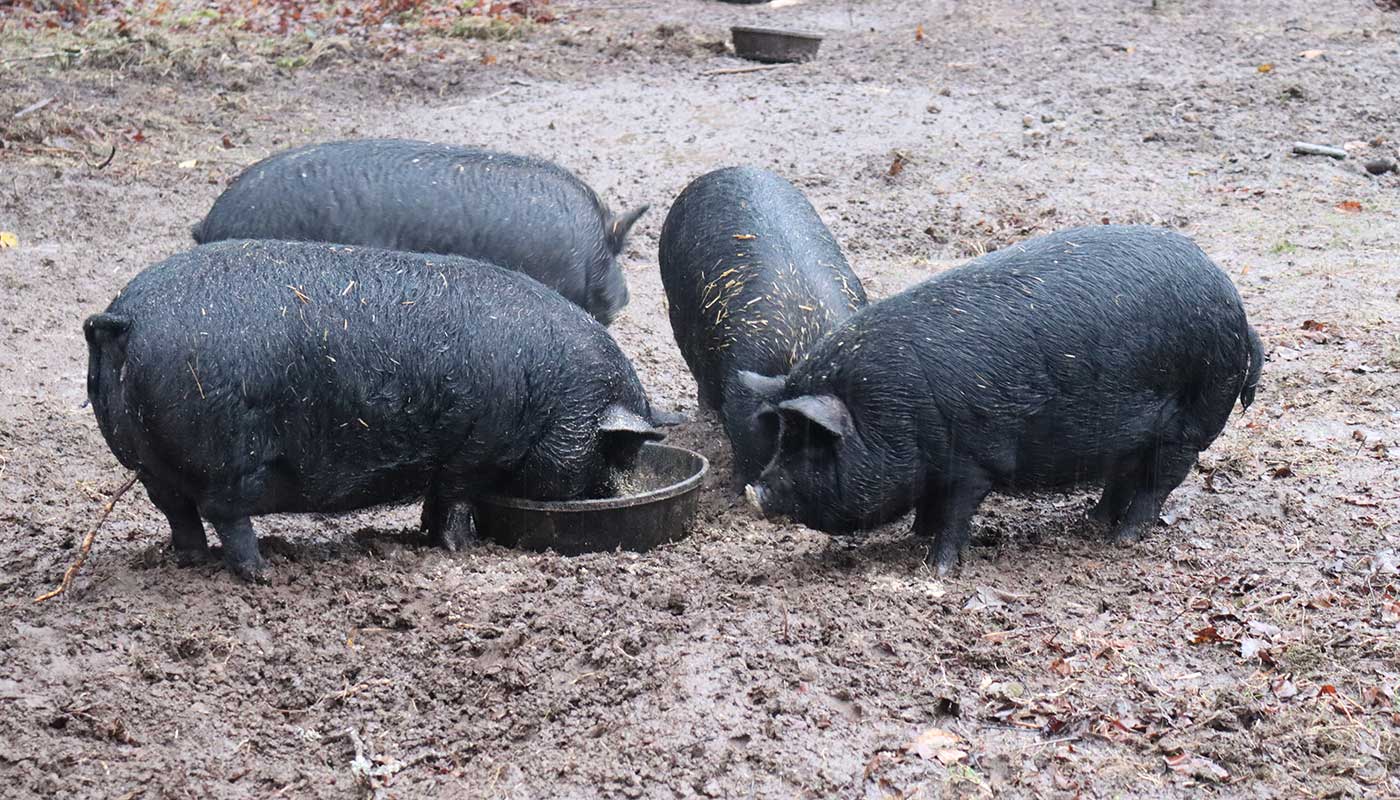
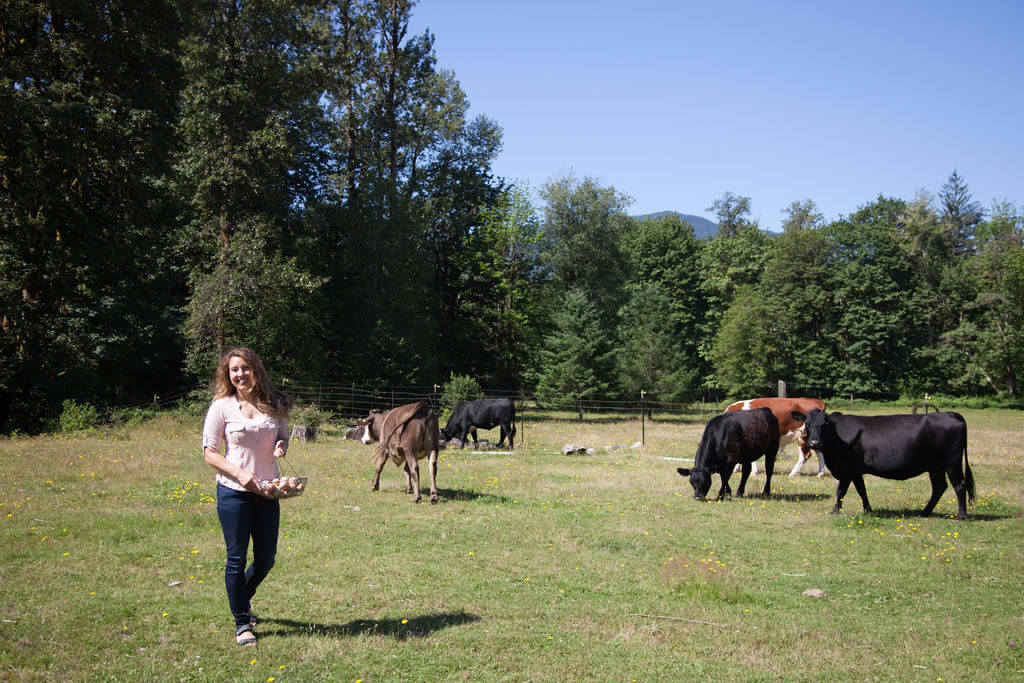
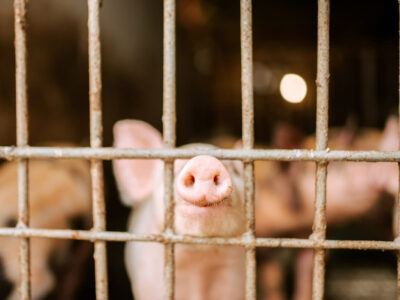
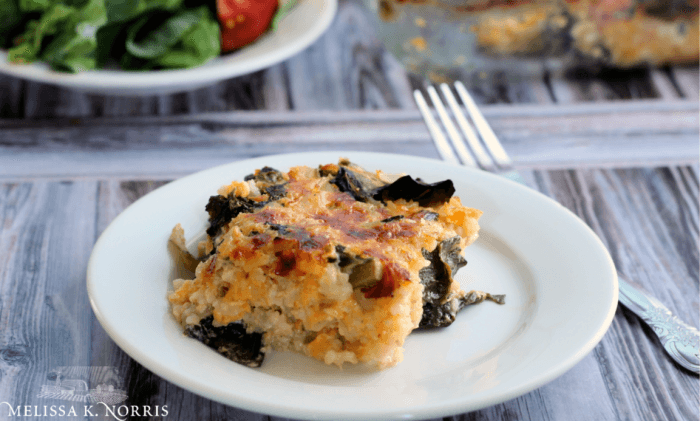
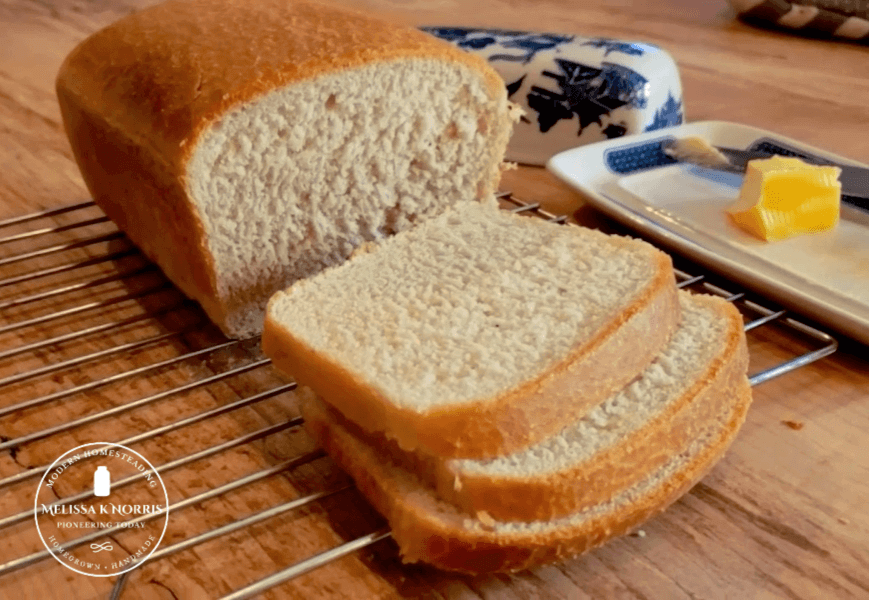
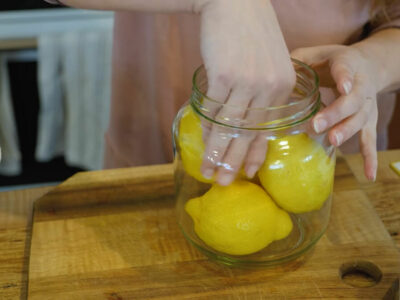
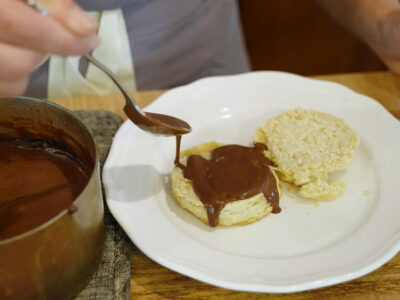
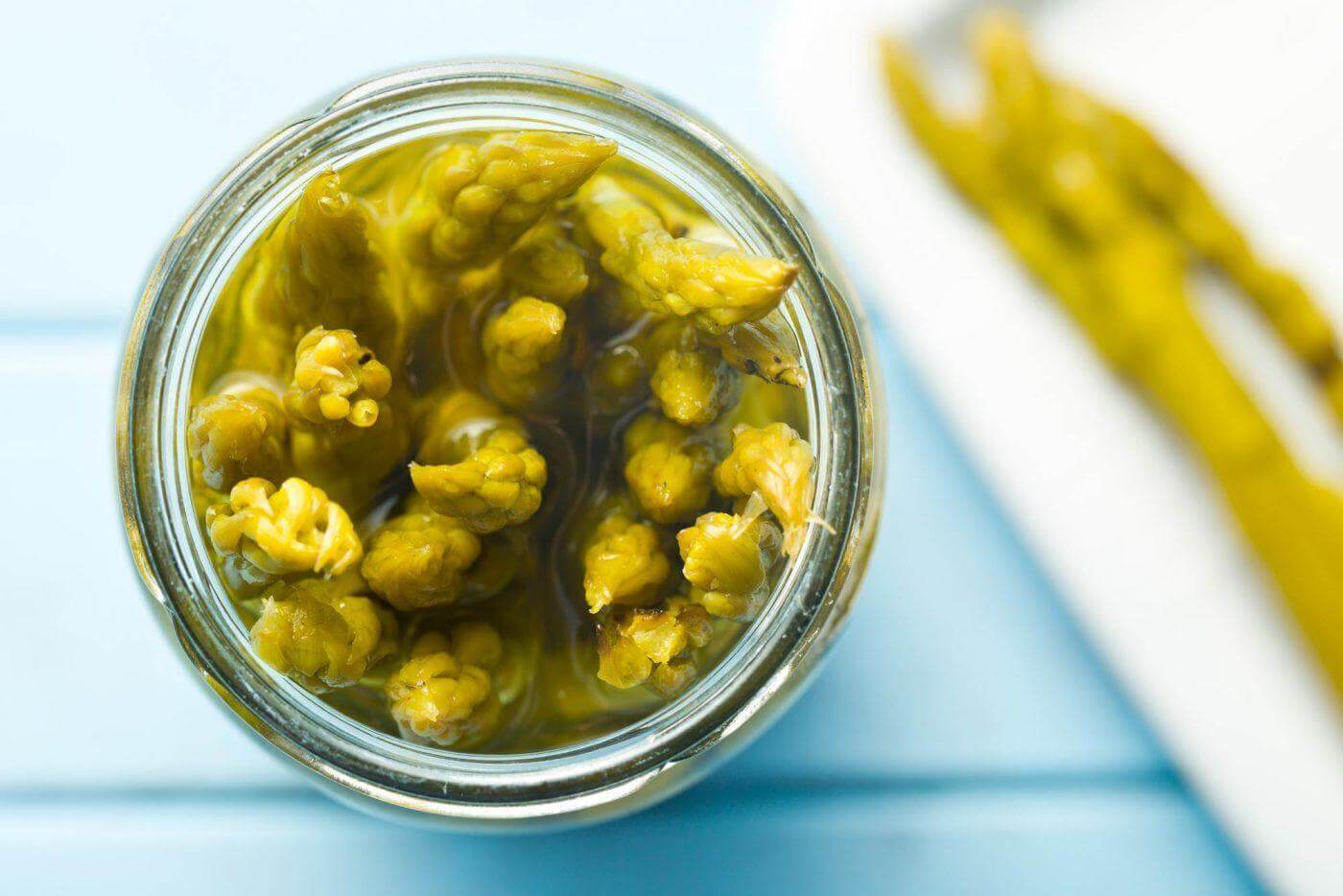

would like to receive emails
I have read that you shouldn’t give chickens ACV in hot weather. I believe it said that it increases the risk of heat stress but I can’t find the reference.